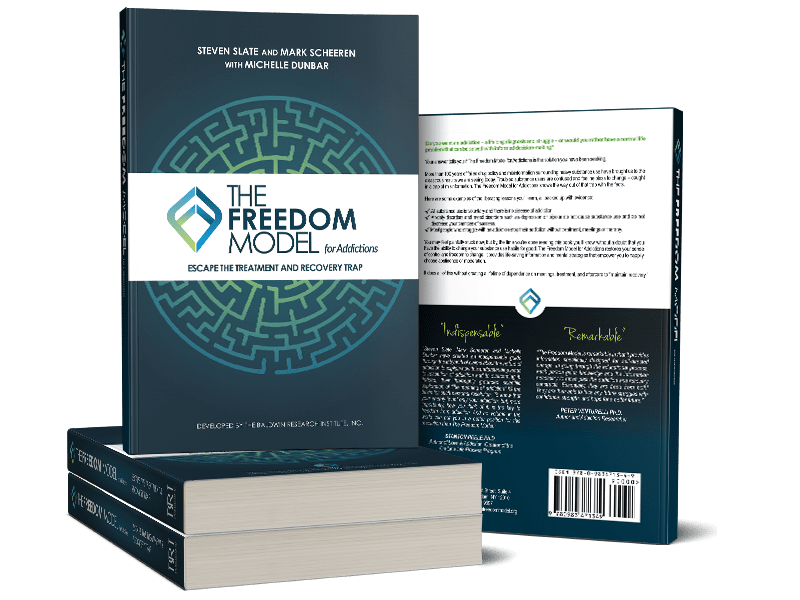You Asked, We Answered
Addiction Questions
The drugs we have today are so much more addictive than they were 20 years ago when we grew up. I think your book avoids this reality, and is irresponsible because of it. Please stop saying people can easily get over an addiction. That might just get someone killed!
That’s a strong accusation. We are sorry you feel this way, and I’m not sure you read the book. We never dismiss addiction as an easy construct to move past if you are a believer in it. However, we do tell the truth that when you logically deconstruct the myths behind the addiction construct, you are left with making some simple choices, one of which is to be free from addiction. However, you certainly are a believer, so we understand that this idea is very difficult to grasp at the moment. With that said, it’s important to note that The Freedom Model for Addictions spends 400+ pages in debunking and unraveling the myths that keep people tied to their addiction construct and addict/alcoholic self-image. Also, the very thing you accuse us of doing – harming people – is being perpetrated by the recovery society myths daily. The difference is we are freeing them of these harmful myths, so they can lead happy, fulfilled lives without an addiction. There is no harm in that to be sure. I’d suggest you read the entire book before you make claim to something that we have never said. Just to make the point clear, here is a short excerpt from The Freedom Model for Addictions about your topic – the “addictiveness of today’s drugs”:
“We talk about pleasure as if it’s an objective thing or a quality inherent in things. This simplistic notion is taken for granted with substances and never questioned. The way substances are discussed, it’s as if a blunt, a Percocet, or a shot of Jack Daniels contains pleasure in the same way that an apple contains nutrients. Nobody seems to realize how deeply this view of inherent pleasure rules the discourse on substance use habits, but it does. And it’s important to pick apart. The notion of “addictiveness” is built on it. The idea that it’s hard to quit or reduce substance use is built on it. The idea that it takes self-control or willpower to “resist” an inherently tempting quality of substances is built on it. The idea that “support” is needed to deal with the loss of this inherent pleasure is built on it. The obsession with the costs and consequences as a necessary focus of quitting is built on the idea that substances inherently contain pleasure. The sense of loss and deprivation that people believe they’ll have to endure when changing a substance use habit is built on the belief in the inherent pleasure of substances.
But what if drugs and alcohol didn’t inherently contain pleasure? What if it was a far more subjective matter than that? The entire approach to quitting or reducing substance use would change. It would no longer have to be about summoning strength and support to resist and avoid temptation. You would no longer have to approach this change with an intense fear of impending loss and deprivation. You could look forward to the potential of greater pleasure and happiness rather than a life of guaranteed lower levels of both.
The truth is that pleasure is entirely subjective in any realm. The idea that anything is inherently pleasurable is flat out wrong. Pleasure isn’t a quality that exists within things. Pleasure is an experience that comes about in myriad ways but one that must always include the individual’s mind.”


0 Comments